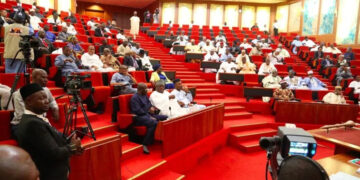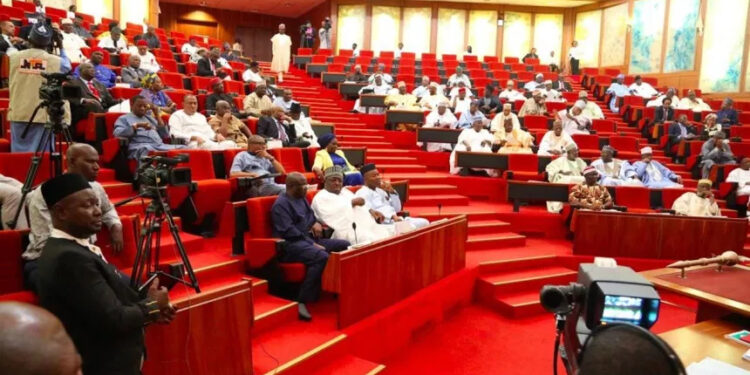By John Ikani
Nigeria’s Senate has approved the Conference Committee report on the Electoral Act Amendment Bill.
The approval was sequel to the presentation and consideration of the report by the Senate Majority Leader, Abdullahi Yahaya, on Tuesday.
Background
A Committee on Electoral Act Amendment was set up to harmonise different versions of the Electoral Act Amendment Bill passed by the Senate and House of Representatives in July, as well as to resolve controversies generated by the legislation.
One of such was clause 62 which deals with the use of modern technology in voting and transmission of results.
The Senate initially empowered the Nigerian Communications Commission (NCC) and the National Assembly to determine the use of electronic transmission of results in an election while the House allowed electoral umpire, INEC, to transmit results of elections by electronic means where and when practicable.
On October 12, the Senate had bowed to pressure and giving the Independent National Electoral Commission (INEC) the sole power to determine the mode of transmission of results.
This followed the reversal of its earlier decision that INEC may consider the electronic transmission of results “provided national [network] coverage is adjudged to be adequate and secure” by the Nigerian Communications Commission and approved by the National Assembly.
Under a new amendment of Clause 52 (2) of the Electoral Act Amendment Bill, the Senate resolved that “voting at an election and transmission of results under this Bill shall be in accordance with the procedure determined by the Commission, which may include electronic voting”.
The Senate also amended clause 87 of the bill to mandate political parties to hold only direct primaries for candidates seeking elective positions – against what was passed earlier.
Direct primary election is the mode of election where all members of a political party participate in the choice of its candidates to stand in the main election.
What’s next?
In his presentation, Mr Yahaya said the Senate version of Clauses 52, 63 and 87 were adopted at the committee.
The lawmaker said the bill is now ready for passage and Presidential assent. And that the citizens’ top priorities, including the use of modern technology, have been addressed therein.
The House is expected to approve the report after which a copy will be transmitted to the president for assent.



































